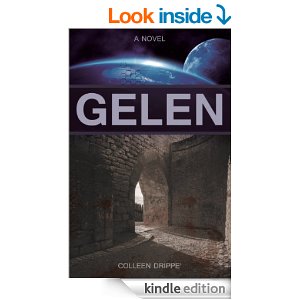
Hard science. Soft science. Speculative fic. Steampunk fic. Fantasy. Cyberpunk fic. There are more than enough genres to go around when it comes to fiction that starts imagining new worlds.
But a common thread runs through them all. Humanity. Even in the event that aliens are involved, or dragons, or zombies, there is nevertheless a human element that remains.
It’s possible, though rare, that this element exists through an anthropomorphic character. But it’s far more common to see a human protagonist. And the reason why is because humans relate to other humans. Being human is our modus operandi.
But what does that mean? If you’re Catholic, it takes on some very distinct perimeters. A human is a rational, social animal with an immortal soul suffering the defects of original sin. What we are not is creatures without a moral choice. Creatures capable of losing our soul as a species. Creatures that, as a whole, are perfectly willing to kill or be killed and live solitary lives, like Gollum.
In terms of science fiction and fantasy, this changes everything. It makes writing creative fiction more difficult because as Catholics, our scenarios are guided by the doctrines of our religion. Religion is not a non-entity to the Catholic writer. Even if it isn’t explicit in our work, it will affect what we write and how we write it.
For example, we won’t write, as one author did, about a world that de-volves into a species of humanity so far removed from what it is to be human, that even the basic notions of empathy and moral choice are beyond them, about a humanity without freewill.
And we don’t write it, not because we dislike the thought of it, but because humanity without the ability to see the good is impossible for the Catholic conscience to even conceive.
If some sort of rational creatures are in the picture, implying they are capable of making moral choices, for the sake of our backstory, we must have some sort of explanation as to how they are capable of evil. Did they have the Fall? When did their fall happen? Did Our Lord redeem them as well? Did they have a single choice, like the angels, and chose the good? It gets quite sticky and requires some innovative thinking to arrive at explanations that are plausible to the Catholic mindset. 
Colleen Drippe, a Catholic author, wrote an excellent science fiction novel that dealt with those questions. In GELEN, her solution, a la Star Trek styled colonization of many other planets by the original Earth humans, is perfect for a Catholic scifi writer because it removes the doubt or question Catholics might have regarding original sin and redemption.
I am in the editing process of a vampire novel. A Catholic vampire novel. That concept, of course, raised plenty of its own issues. How does one reconcile the evil vampire trope with a hardworking man who is trying to be a good Catholic? Are vampires always evil? If so, why? Considering that they can be turned without their own volition?
Like with vampires, zombies raise a whole series of questions concerning the state of the soul. If a zombie is an “undead” person, is it solely a matter of their soul being present but their mind being dead? How does one fit “dead but not dead” into a Catholic context?
You might say, “Whoa. You are really overthinking this.” It’s possible. But I think some deep thinking about these questions, about all the questions of what it means to be human, are what can make the difference between a “meh” entertaining read and a book that people are willing to recommend to their friends.
It is harder to be a Catholic scifi/fantasy writer because we have to be firmly planted within the hard realities of Catholicism for our writing to be Catholic. That’s not to say we can’t introduce the unexplainable, and I’m sure many writers have, do, and will. But we don’t have “the luxury” (in quotes, because it’s a freedom I have no desire to own) of imagining a world premised on humanity becoming something other than what it is, or a world in which rational creatures are incapable of knowing and loving the one, true God.
Does this make us better authors? It can. But at this point the market is inundated with non-Catholic and anti-Catholic writing, so who can say? Certainly, there are some provocative, entertaining scifi novels out there. I would like to see more Catholics, though, take on the challenge of writing science fiction/fantasy within a Catholic context.


I have been reading posts regarding this topic and this post is one of the most interesting and informative one I have read. Thank you for this!
in writing Science fiction, preparing conflicts as many as you can be a great idea. You can add branches to your main conflict. To come up with a compelling conflict, you need to go back to the previous point.
LikeLike